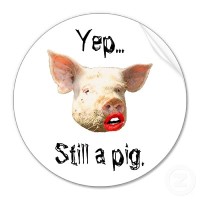From Lars Syll “the heart of darkness in ‘New Keynesian’ macroeconomics” Macroeconomic models may be an informative tool for research. But if practitioners of ‘New Keynesian’ macroeconomics do not investigate and make an effort to provide a justification for the credibility of the assumptions on which they erect their building, it will not fulfil its tasks. There is a gap between its aspirations and its accomplishments, and without more supportive evidence to substantiate its claims, critics will continue to consider its ultimate argument as a mixture of rather unhelpful metaphors and metaphysics. Maintaining that economics is a science in the ‘true knowledge’ business, yours truly remains a sceptic of the pretences and aspirations of ‘New Keynesian’ macroeconomics. So far, I cannot
Topics:
Lars Pålsson Syll considers the following as important: Uncategorized
This could be interesting, too:
tom writes The Ukraine war and Europe’s deepening march of folly
Stavros Mavroudeas writes CfP of Marxist Macroeconomic Modelling workgroup – 18th WAPE Forum, Istanbul August 6-8, 2025
Lars Pålsson Syll writes The pretence-of-knowledge syndrome
Dean Baker writes Crypto and Donald Trump’s strategic baseball card reserve
from Lars Syll
“the heart of darkness in ‘New Keynesian’ macroeconomics”
Macroeconomic models may be an informative tool for research. But if practitioners of ‘New Keynesian’ macroeconomics do not investigate and make an effort to provide a justification for the credibility of the assumptions on which they erect their building, it will not fulfil its tasks. There is a gap between its aspirations and its accomplishments, and without more supportive evidence to substantiate its claims, critics will continue to consider its ultimate argument as a mixture of rather unhelpful metaphors and metaphysics. Maintaining that economics is a science in the ‘true knowledge’ business, yours truly remains a sceptic of the pretences and aspirations of ‘New Keynesian’ macroeconomics. So far, I cannot really see that it has yielded very much in terms of realistic and relevant economic knowledge.
Keynes basically argued that it was inadmissible to project history on the future. Consequently, an economic policy cannot presuppose that what has worked before, will continue to do so in the future. That macroeconomic models could get hold of correlations between different ‘variables’ was not enough. If they could not get at the causal structure that generated the data, they were not really ‘identified.’ Dynamic stochastic general equilibrium (DSGE) macroeconomists — including ‘New Keynesians’ — have drawn the conclusion that the problem with unstable relations is to construct models with clear microfoundations where forward-looking optimizing individuals and robust, deep, behavioural parameters are seen to be stable even to changes in economic policies. As yours truly has argued in a couple of posts (e. g. here and here), this, however, is a dead end.
Here we are getting close to the heart of darkness in ‘New Keynesian’ macroeconomics. Where ‘New Keynesian’ economists think that they can rigorously deduce the aggregate effects of (representative) actors with their reductionist microfoundational methodology, they have to turn a blind eye to the emergent properties that characterize all open social systems – including the economic system. The interaction between animal spirits, trust, confidence, institutions etc., cannot be deduced or reduced to a question answerable on the individual level. Macroeconomic structures and phenomena have to be analyzed also on their own terms. And although one may easily agree with e.g. Paul Krugman’s emphasis on simple models, the simplifications used may have to be simplifications adequate for macroeconomics and not those adequate for microeconomics.
 In microeconomics, we know that aggregation really presupposes homothetic and identical preferences, something that almost never exists in real economies. The results given by these assumptions are therefore not robust and do not capture the underlying mechanisms at work in any real economy. Models that are critically based on particular and odd assumptions – and are neither robust nor congruent to real-world economies – are of questionable value.
In microeconomics, we know that aggregation really presupposes homothetic and identical preferences, something that almost never exists in real economies. The results given by these assumptions are therefore not robust and do not capture the underlying mechanisms at work in any real economy. Models that are critically based on particular and odd assumptions – and are neither robust nor congruent to real-world economies – are of questionable value.
Even if economies naturally presuppose individuals, it does not follow that we can infer or explain macroeconomic phenomena solely from the knowledge of these individuals. Macroeconomics is to a large extent emergent and cannot be reduced to a simple summation of micro-phenomena. Moreover, even these microfoundations aren’t immutable. The ‘deep parameters’ of ‘New Keynesian’ DSGE models — ‘tastes’ and ‘technology’ — are not really the bedrock of constancy that they believe (pretend) them to be.
‘New Keynesian’ macroeconomists have for years been arguing about the importance of the New Classical Counter Revolution in economics. ‘Helping’ to change the way macroeconomics is done today — with rational expectations, Euler equations, intertemporal optimization, and microfoundations — their main critique of New Classical macroeconomics is that it didn’t incorporate price stickiness into the Real Business Cycles models developed by the New Classicals. So — the ‘New Keynesians’ adopted the methodology suggested by the New Classicals and just added price stickiness!
 But does putting a sticky-price DSGE lipstick on the RBC pig really help?
But does putting a sticky-price DSGE lipstick on the RBC pig really help?
It sure doesn’t!
A pig with lipstick is still a pig.
So I cannot concur with Paul Krugman, Mike Woodford, Greg Mankiw and other sorta-kinda ‘New Keynesians’ when they more or less try to reduce Keynesian economics to intertemporal maximization modified with sticky prices.
